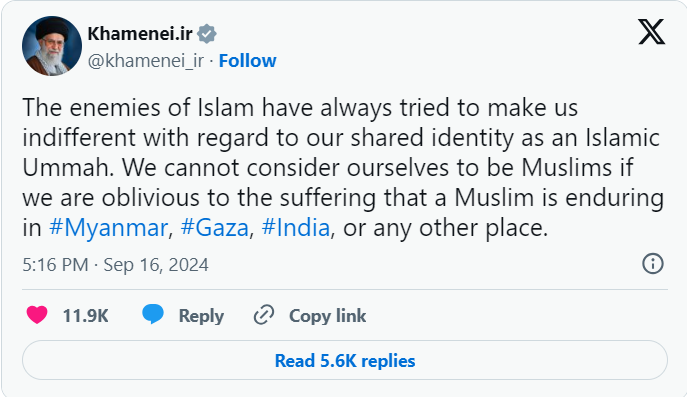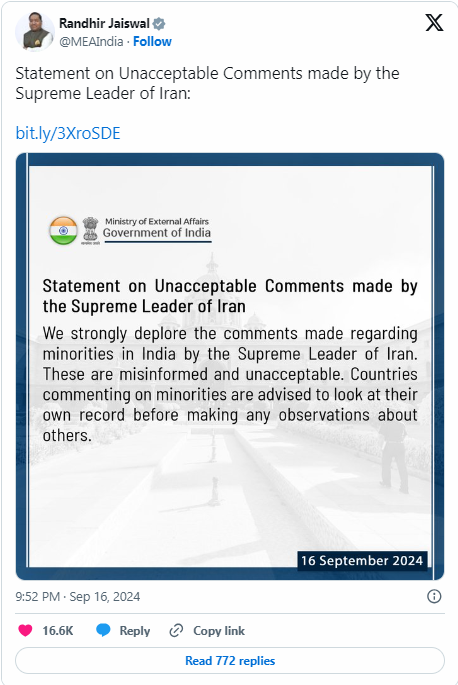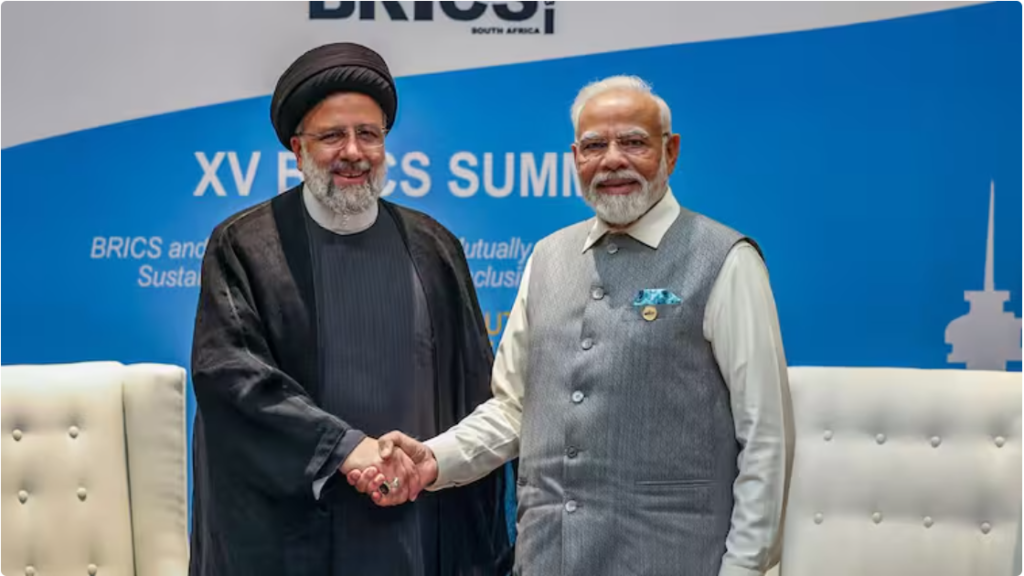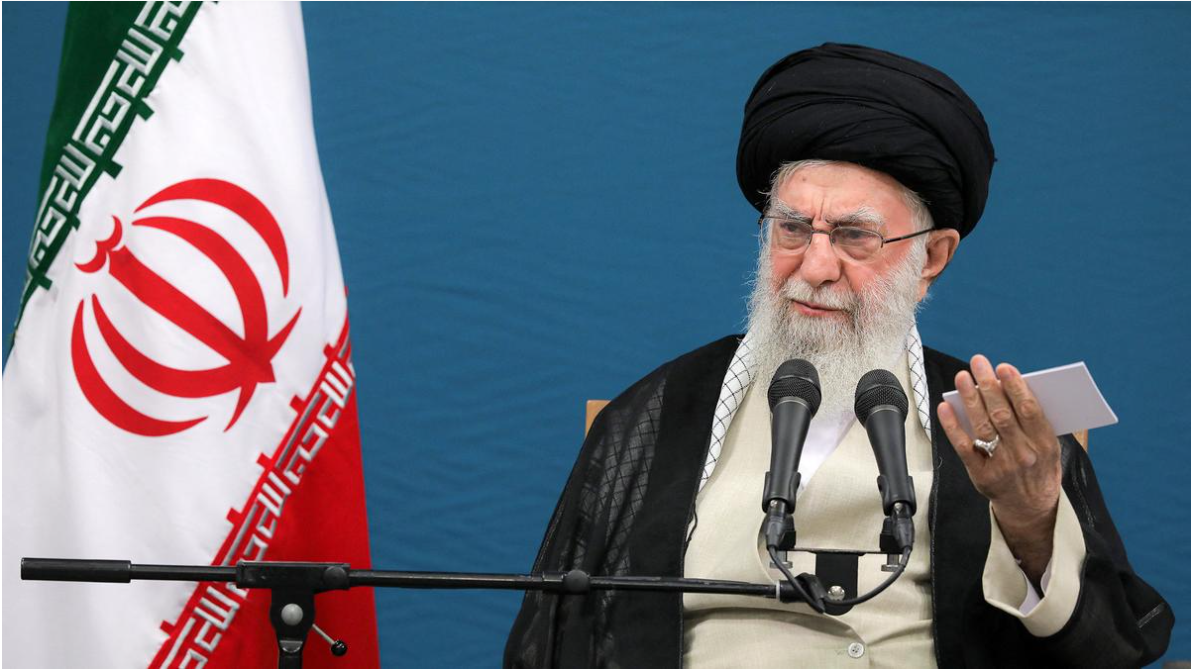Iran’s Supreme Leader, Ayatollah Ali Khamenei recently made a comment in which he talked about the atrocities being faced by Muslims in India, Myanmar, and Gaza. Khamenei said in one of his posts that the Muslim world should be more aware of its shared Islamic identity and raise its voice for the suffering of Muslims around the world. He also mentioned India and expressed concern over the condition of Muslims there.

India’s Ministry of External Affairs (MEA) responded swiftly to this, terming Khamenei’s comments as “misinformed” and said other countries should look at their own record before commenting on minorities issues.

The MEA also said that in India all citizens, irrespective of their religion, are given constitutional security and everyone has equal rights.
This exchange took place at a time when India and Iran have very good diplomatic relations, like the Chabahar Port project, in which both countries are working together.

Although the incident is not expected to have much impact on broader strategic ties, both countries will continue to work for their mutual interests.
Khamenei’s comments were not just limited to India, he also expressed concern about the oppression being faced by Muslims in Gaza and Myanmar and called for the unity of the Islamic world. This situation shows how international comments can be sensitive, especially on the issue of religious freedom.
